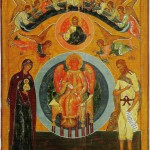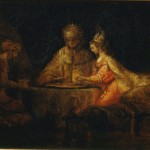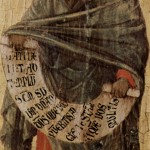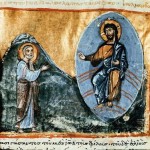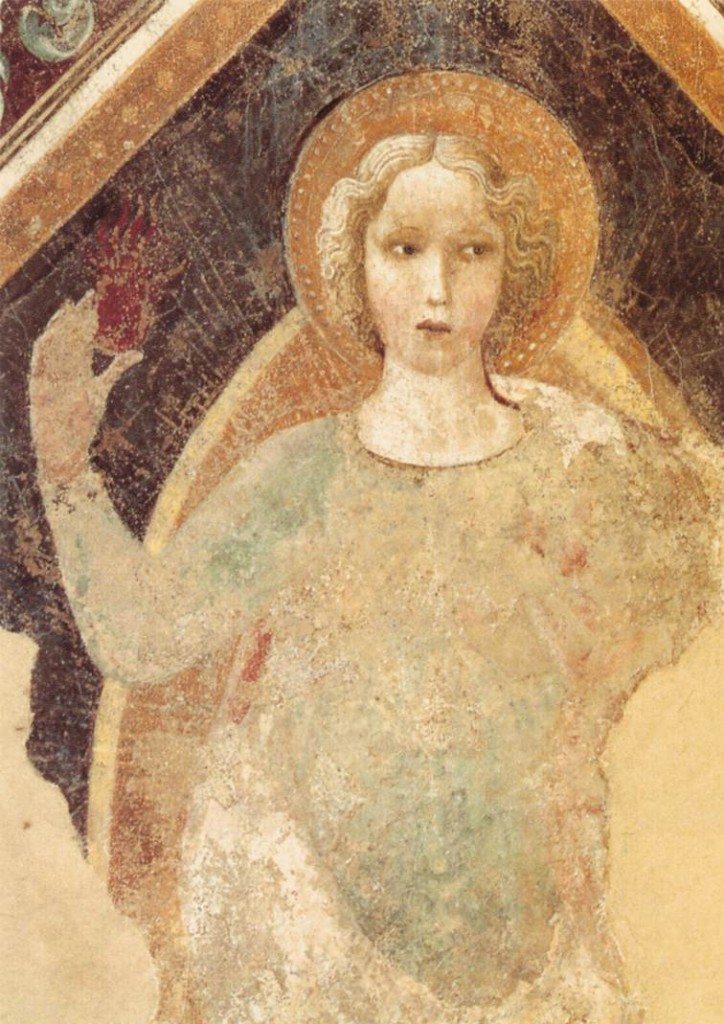
What It’s About: This is that famous passage of Proverbs that often gets read on Mother’s Day, in which the ideal woman is described. Or actually–it’s about the ideal wife. Or actually–it’s about someone’s opinion about the ideal wife. Or actually–it’s someone’s opinion about the ideal wife, if that wife lived about 25 centuries ago. This passage is fine for what it is, but there have been so many troublesome and damaging interpretations of it over the years, it’s hard to feel good about it. Personally, I cringed when I saw it come up in the lectionary, because I don’t think I’ve ever heard a sermon on this passage that wasn’t in some way misogynistic, sexist, condescending, or just weird. And that has more to do with our interpretations than it has to do with the passage itself.
What It’s Really About: This passage fits very well into the general themes of wisdom literature, of which Proverbs is a part. Seek wisdom, live righteously, demonstrate temperance and a general level-headedness, and all will be well. The notes in my Oxford NRSV put forth an interesting thesis: that “finding” this ideal wife is structured in the same way as “finding” wisdom is. That makes a lot of sense to me. Wisdom is cast as feminine; famously, the relevant Greek word here is sophia. Wisdom literature is largely about how we should seek wisdom, finding her where she waits for those who know to look. So, this part of Proverbs 31 is about wisdom personified as a woman, but in a much more literal way–men (and, if I’m updating the interpretation for the 21st century, women who seek a wife) ought to seek out a woman who looks as much like Sophia as possible. Makes sense to me.
What It’s Not About: I think we ought to resist any totalizing, stereotyping descriptions of persons. I’ve heard more than enough sermons on Proverbs 31 as describing the standard to which all women should aspire. I am not a woman, but I can imagine how frustrating this must be. There are lots of different ways to be a woman. I would resist someone telling me, especially in the form of a sermon, what kind of man I ought to be. Women are right to resist this. Not every woman will see herself in the description here, and I don’t think that’s what the author intended anyway. I think this passage is much more about finding the beauty and virtue inherent in each person, and not necessarily a checklist to be consulted on first dates.
Maybe You Should Think About: One of the most interesting projects of biblical interpretation in the 20th century was Clarence Jordan’s Cotton Patch Gospels. That was a “translation” of scripture into the vernacular of a particular time and place. What would happen if we “translated” this passage for our time and place? How would these same sentiments be expressed today? It might not be in terms of ability to weave wool and flax, but it might be some other attribute that we value more highly in our own society. And if this really is a reflection of the way we all ought to seek divine wisdom, then how would we read this passage today to reflect the ways our interpersonal relationships can point us towards God?
What It’s About: This is exhortation through and through. The author is arguing for a kind of ethical standard, based on personal continence and social equilibrium. These words sound like they were written to people who were prone to discord (who isn’t?), and to a group of people who needed reminding about how to live in community.
What It’s Really About: This passage from James is back to the same themes of Wisdom that we saw in Proverbs. This is, for the New Testament, a fairly explicit appeal to sophia, and I think the author expects the reader to have the wisdom literature from books like Proverbs in mind as we read this. This is a reminder of the lessons of that literature, not any kind of innovation on the part of the author. In that sense, I would see this passage as an act of exegesis–which is true, of course, of much of biblical literature.
What It’s Not About: It’s not about verses 4-6, which are left out. Why? I’m not sure. Maybe they’re too harsh? Maybe the adultery charge was too specific? It’s kind of an odd choice to leave those verses out, I think.
Maybe You Should Think About: How much are our communities like the one(s) to which this letter was written? How much do those circumstances match ours? It seems to me that human communities don’t change too much; the challenges faced by a community in the 1st century were probably a lot like the ones we face today. People have a hard time agreeing. Humans are selfish. They can be petty. It’s hard to be together in accord. This passage is actually pretty relevant to our own day, isn’t it?
What It’s About: This is such a typical Mark passage. It is brief and somewhat guttural. It includes themes of confusion and obfuscation. It concludes with a cryptic object lesson. At the end, you have the sense that some great wisdom has transpired, but it’s hard to put your finger on what exactly it is.
What It’s Really About: This is about knowledge and power. Knowledge seems to elude the disciples; here as elsewhere in Mark they really don’t understand what is being said. But that doesn’t stop them from seeking power; they wanted to know which of them was the greatest. Jesus’ response demonstrates that greatness has very little to do with the criteria they were using. Greatness, in Jesus’ way of seeing it, isn’t very much about achievements, accolades, competency, or intellect. Greatness is about weakness. Of course, we know that this is a theme that will resurface in the ministry and life (and death) of Jesus, but to the disciples, this is just confusing.
What It’s Not About: It’s not about wisdom! It’s fascinating to see this passage paired with the James and the Proverbs, which presuppose wisdom as personal attributes worth having. Here, the best example is a child: Jesus pulls a child into the group and says, “be like this.” There are probably ways to synthesize these two viewpoints, but I think I prefer to leave them in a little bit of discord. Jesus is in some ways rejecting the narrative of the refinement of the self that Proverbs and James put forth. He is saying, “stop putting on so many airs. Be like you were before you learned to pretend.” Weakness and innocence are more valuable, at least here, than self-help and refinement.
Maybe You Should Think About: Have a child read this scripture. They won’t read it perfectly. They will stumble over words. That will be the point.

